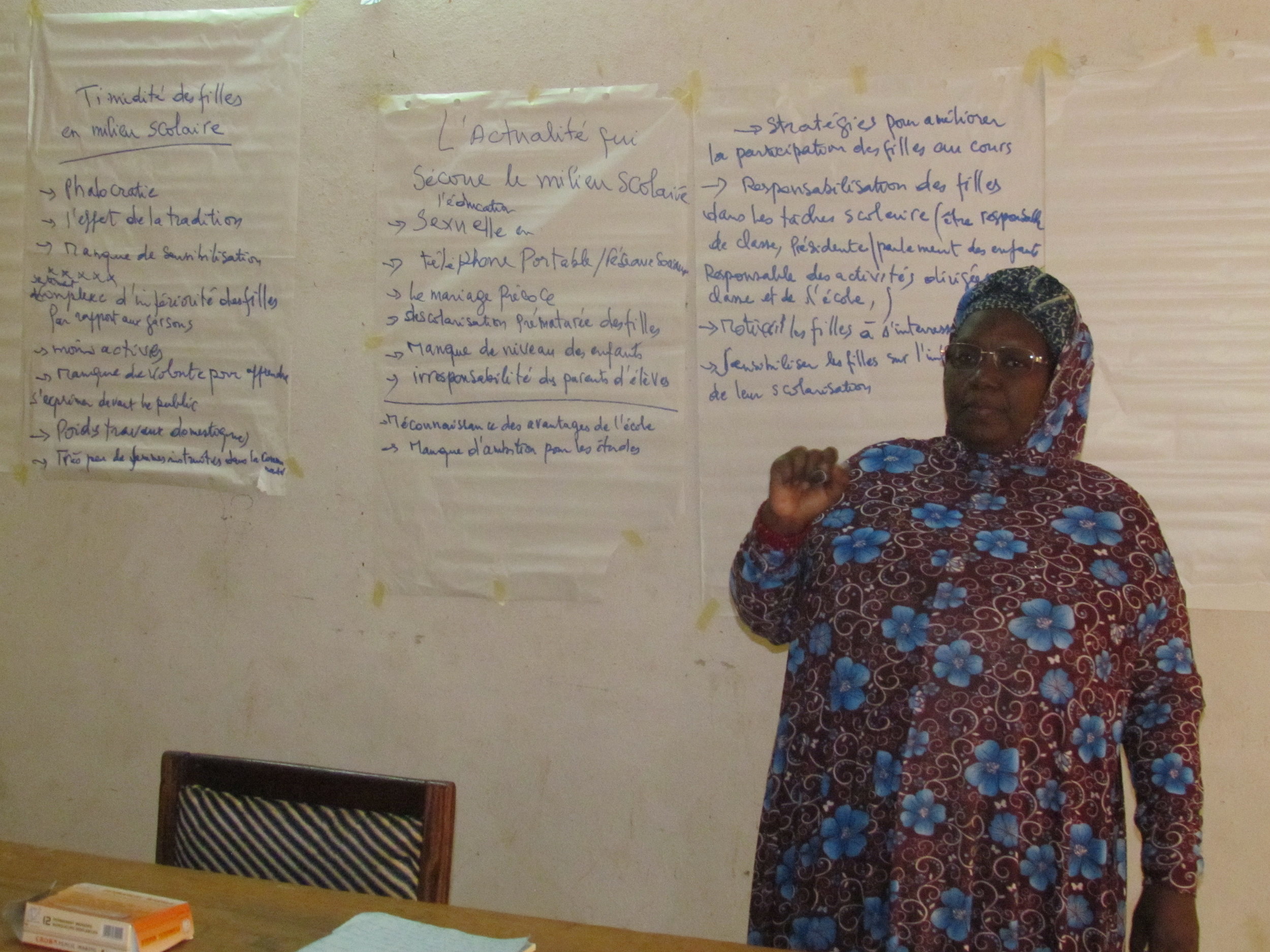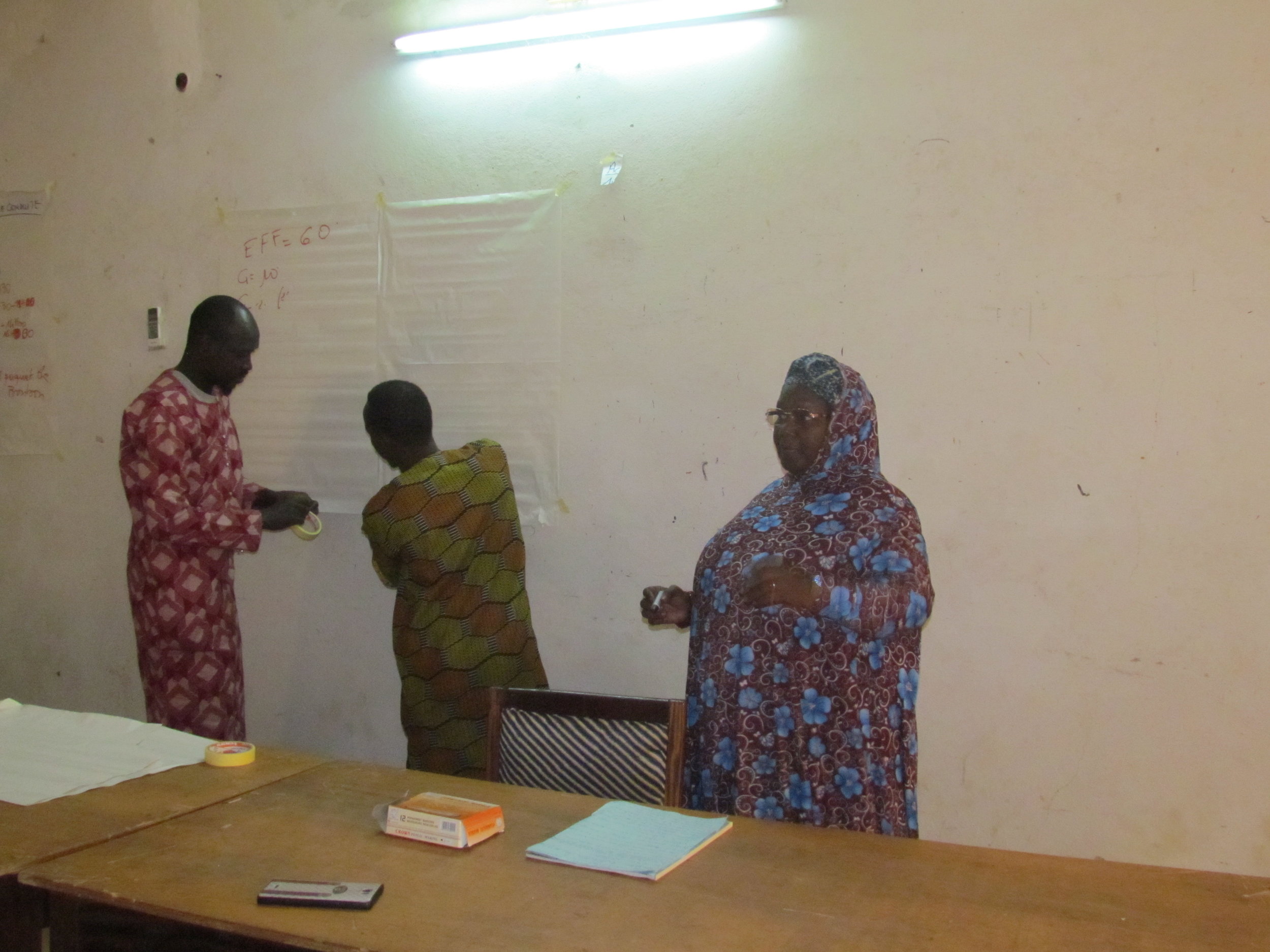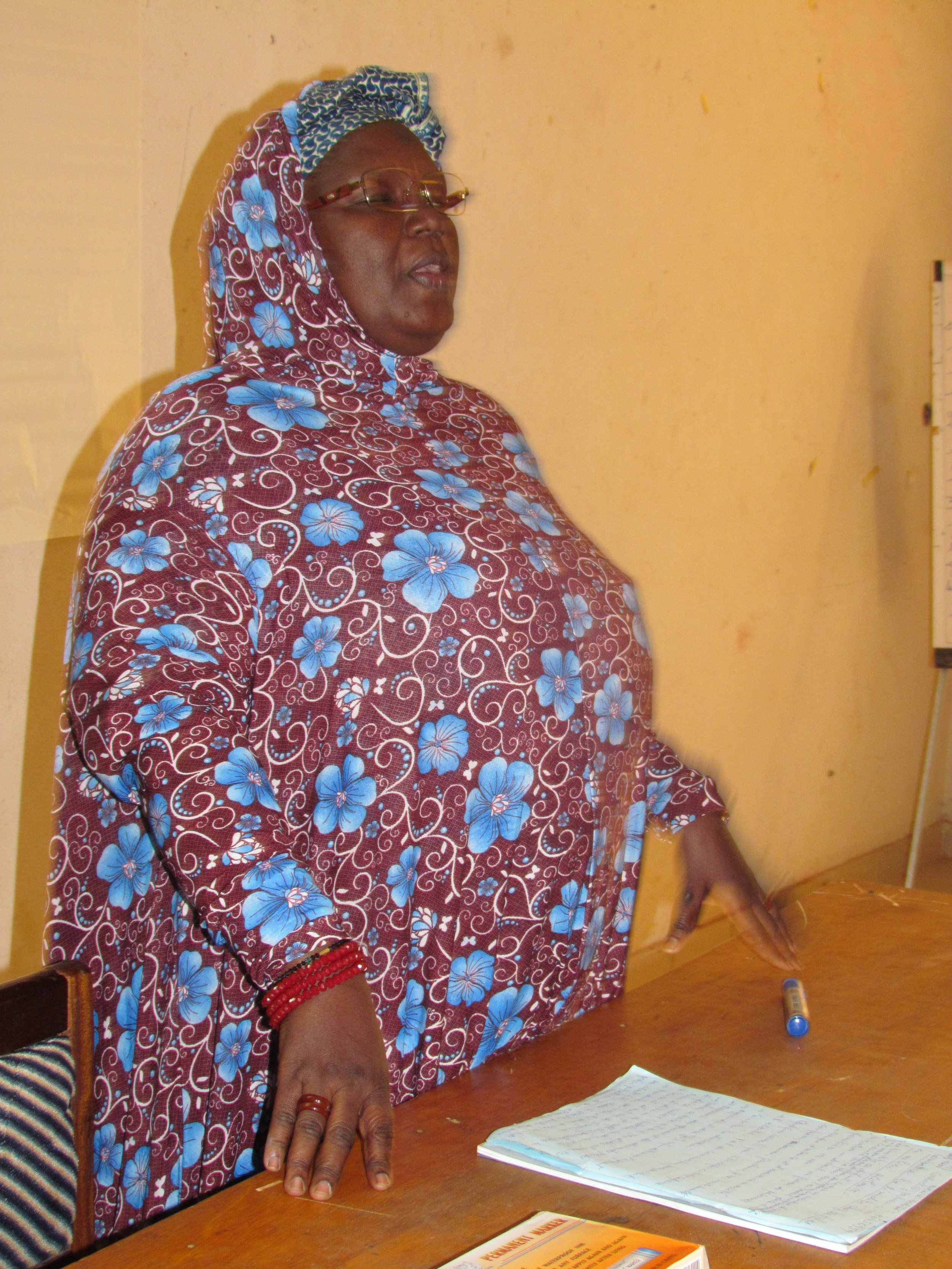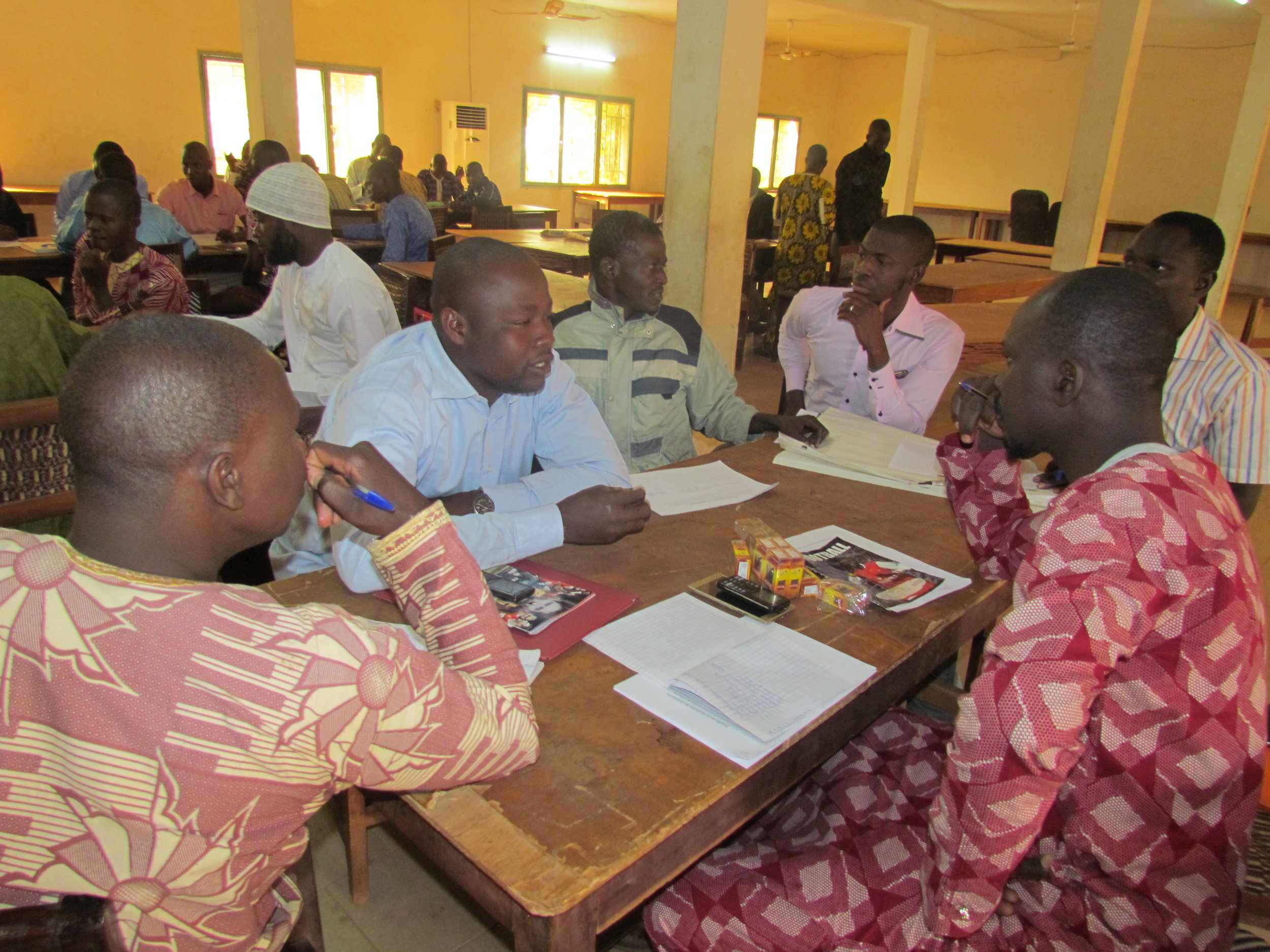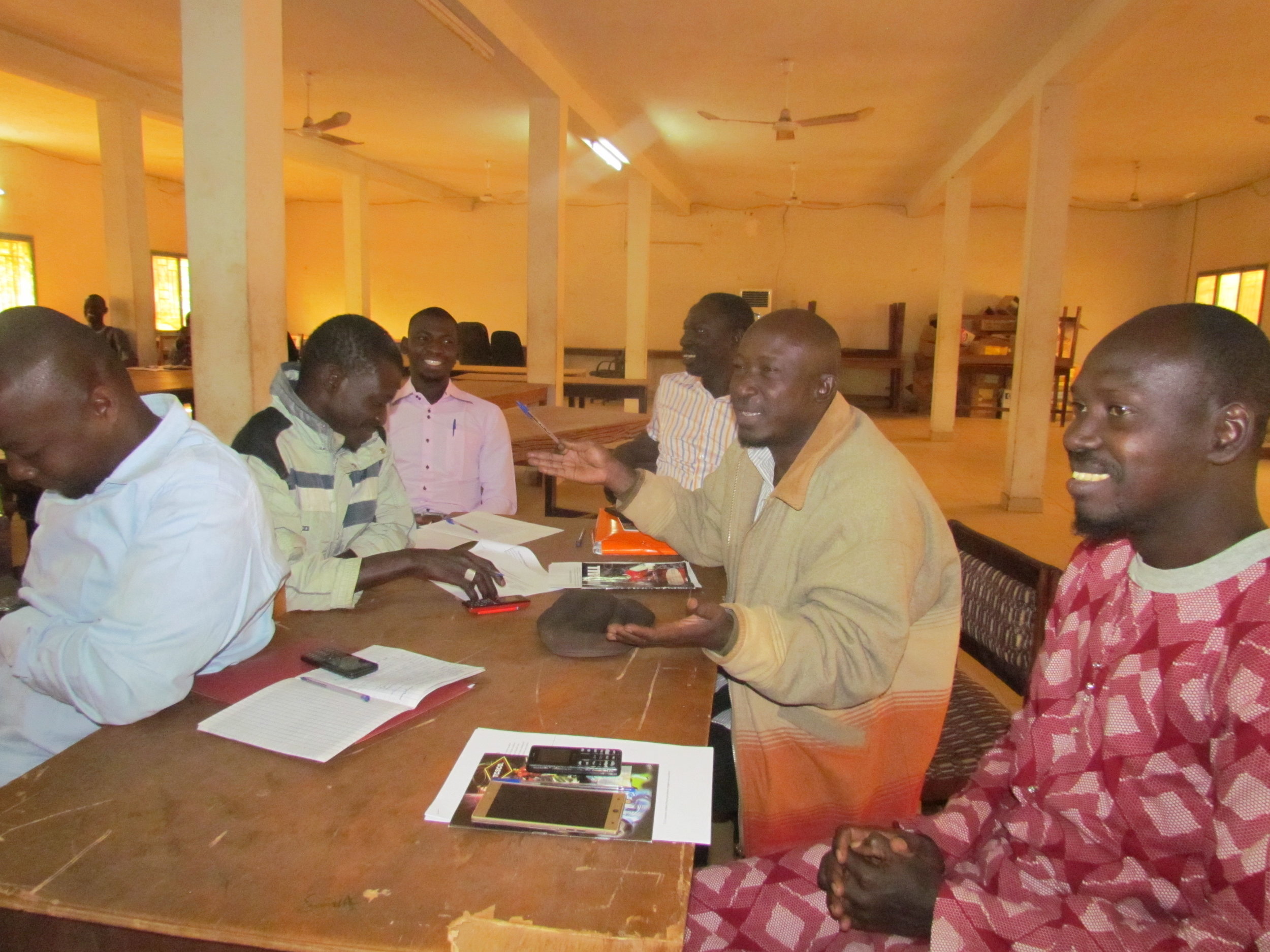By Hindaty Traore, Girls Project Coordinator
Interestingly, most teachers in Mali are male. But as you can see here, they are very engaged in learning how to better serve all their students — male and female alike.
For so many girls, trouble with shyness begins with family education and continues in school. Girls in Mali, especially in small, rural villages, continue to be unfairly discriminated against because of their sex. They are deprived of school simply because they are born girls. According to the parents in the villages their schooling is of no importance because their destiny is to be married young and to take care of household chores and children.
During Mali Rising's teacher training for capacity building in December, a day was devoted solely to gender, with a theme of "Shyness of girls and gender equity in school settings.” We cannot speak about girls' shyness without mentioning the discrimination between girls and boys, which is one of the main causes of shyness, whether in the family or at school, because the girls are lead to underestimate themselves, which prevents them from asserting themselves.
At the training, our teachers engaged in identifying the possible causes and consequences of girls’ shyness, identifying factors that may exacerbate or, on the contrary, moderate this tendency. Then, teachers examined the implications and possible methods of intervention on the educational level.
The debate was very strong because of the importance of the theme. Each participating teacher and the facilitator gave their opinion on the causes, consequences, and solutions of shyness among girls. Several factors were evoked such as: sexism, the effect of tradition, lack of awareness, feelings of inferiority complex of girls compared to boys, a lack of willingness to learn to speak in front of the public, the weight of domestic work, very few educated women in their communities to serve as role models, and more.
A broad range of ideas and opinions were debated, but at the end the participants were all unanimous in support of the teaching methodology proposed by the facilitator to help girls to better assert themselves at the school environment. For example, the methodology stressed knowing how to recognize and value the good results acquired by the children (girl and boy), the equitable sharing of tasks and activities between girls and boys in school, the consideration of girls’ opinion in the decision-makings, combating the negative judgment threat that the other may relate to her, a bad advanced idea, failure, a medium base due to a negative evaluation, and much more.
Thanks to the teacher training, we were able to shed a global light on the issue of shyness among girl students. Henceforth our teachers will know how to apply techniques which are necessary to help our girls to overcome this shyness which prevents them from prospering in the classroom.


